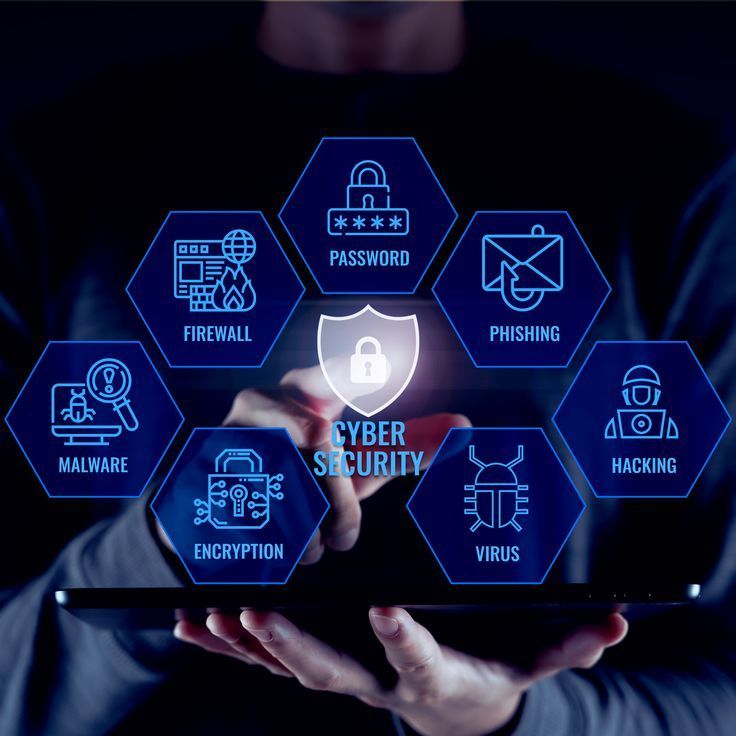What is artificial intelligence (AI)? Full Guide
for 2025
By Swarup Mahato
Software Engineer | Cybersecurity Expert | Blogger
🔍 Introduction to Artificial Intelligence
Artificial Intelligence (AI) is the science and engineering of creating machines that can think, learn, and make decisions like humans. It is one of the most powerful and disruptive technologies of the 21st century, transforming every industry — from healthcare to finance, transportation, education, and cybersecurity.
In simple terms, AI allows computers to mimic human intelligence to solve complex problems, recognize patterns, and automate tasks that typically require human cognition.
💡 Key Components of AI
1. Machine Learning (ML)
A subset of AI that enables machines to learn from data and improve over time without being explicitly programmed.
-
Algorithms: Supervised, Unsupervised, Reinforcement Learning
-
Tools: Scikit-learn, TensorFlow, PyTorch
2. Deep Learning
A specialized form of machine learning using neural networks with multiple layers — often used in voice recognition, computer vision, and natural language processing.
-
Tools: TensorFlow, Keras, OpenCV
3. Natural Language Processing (NLP)
Allows machines to understand, interpret, and generate human language.
-
Applications: Chatbots, Voice Assistants (e.g., Siri, Alexa), Translation Tools
-
Libraries: NLTK, SpaCy, Hugging Face Transformers
4. Computer Vision
Empowers machines to interpret visual data from the world, such as images and videos.
-
Applications: Facial Recognition, Self-driving Cars, Medical Imaging
-
Tools: OpenCV, YOLO, MediaPipe
5. Robotics
Integrates AI with physical machines to create smart robots capable of perception, decision-making, and real-time action.
🔎 Why is AI Important in 2025?
-
🚀 Automation: Automates repetitive tasks in businesses and industries.
-
🧠 Intelligent Decisions: Enhances decision-making using predictive analytics.
-
💬 Better Customer Service: AI chatbots and virtual assistants offer 24/7 support.
-
🏥 Healthcare Breakthroughs: Detects diseases, personalizes treatment, and improves diagnostics.
-
💼 Jobs of the Future: AI is driving demand for data scientists, AI engineers, and automation specialists.
📈 Real-World Applications of AI
| Industry | AI Use Cases |
|---|---|
| Healthcare | Disease diagnosis, drug discovery, robotic surgeries |
| Finance | Fraud detection, algorithmic trading, chatbots |
| Retail | Customer recommendations, inventory prediction |
| Automotive | Self-driving cars, smart navigation |
| Cybersecurity | Threat detection, anomaly analysis, automated response |
| Education | Adaptive learning, grading automation, virtual tutors |
| Agriculture | Crop monitoring, pest prediction, precision farming |
🛠️ Popular AI Tools & Frameworks
-
TensorFlow – Google’s deep learning framework
-
PyTorch – Facebook-backed, user-friendly for research
-
Scikit-learn – For traditional machine learning
-
OpenCV—for computer vision tasks
-
Keras – High-level neural networks API
-
Hugging Face – Pre-trained NLP models
🎓 How to Start Learning AI?
Prerequisites:
-
Python programming
-
Basic mathematics (Linear Algebra, Probability, Calculus)
-
Understanding of data structures and algorithms
Recommended Learning Path:
-
Start with Python: Learn basics of Python and libraries like NumPy, Pandas
-
Machine Learning Basics: Learn classification, regression, clustering
-
Deep Learning & Neural Networks: Use TensorFlow and Keras
-
NLP and Computer Vision: Explore Hugging Face, OpenCV
-
Projects: Build AI chatbots, recommendation systems, object detection tools
Top Platforms to Learn AI in 2025:
-
freeCodeCamp – Free tutorials
-
Coursera – AI Specializations by Stanford, Google, DeepLearning.AI
-
Udemy – Affordable AI and ML courses
-
Google AI – Learning resources and research papers
-
Kaggle – Practice with real datasets and competitions
🧠 Future of AI
By 2030, AI is expected to contribute over $15 trillion to the global economy (Source: PwC). The future of AI includes:
-
AGI (Artificial General Intelligence) with human-like thinking
-
Explainable AI—Transparent decision-making processes
-
AI + IoT Intelligent automation across connected devices
-
AI in Cybersecurity—AI-based threat intelligence and autonomous defense systems
🔑 Popular Questions in 2025
-
What is Artificial Intelligence
-
AI for beginners
-
Future of Artificial Intelligence
-
Machine Learning vs AI
-
How to learn AI
-
AI applications in real life
-
AI tools in 2025
-
Deep Learning guide
-
AI roadmap for students
-
Artificial Intelligence in Cybersecurity
📝 Final Thoughts by Swarup Mahato
Artificial intelligence is no longer the future —it's the present. Whether you're a developer, analyst, researcher, or entrepreneur, AI can empower your career and accelerate innovation. Start learning AI today and be a part of the revolution that's reshaping the world.
“The real risk with AI isn’t malevolence — it’s competence.” – Eliezer Yudkowsky
💬 Let’s Talk!
What excites you most about artificial intelligence?
Are you planning to explore AI for web development, data science, or cybersecurity?
Comment below and share your thoughts!
📌 Follow me for more:
Swarup Mahato
Software Engineer | Cybersecurity Expert | Blogger
🔗 https://swarupinfotech.in
📧 [email protected]
#AI #ArtificialIntelligence #MachineLearning #DeepLearning #NLP #ComputerVision #AITools #LearnAI #Cybersecurity #TechCareer #SwarupMahato

